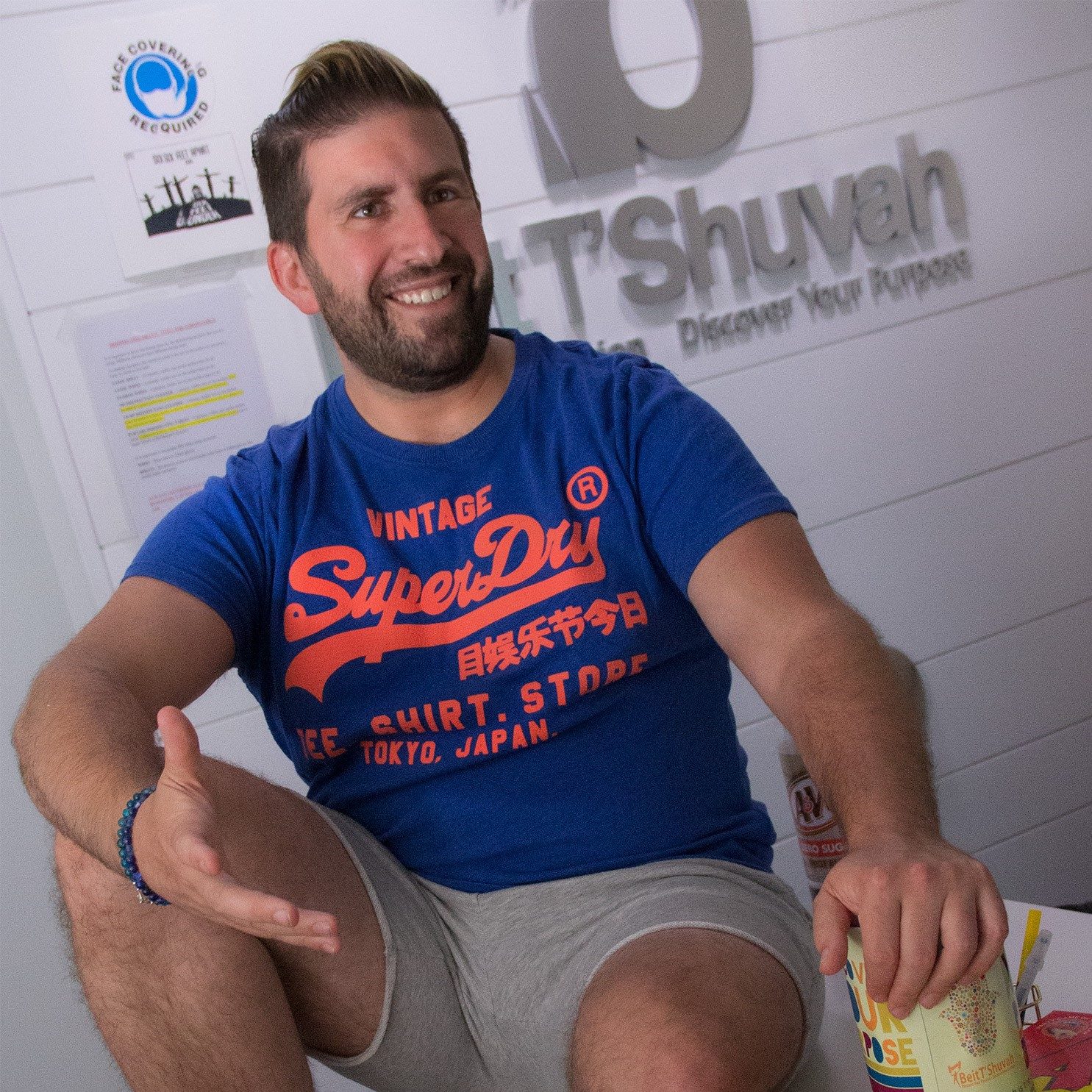By the time Jack A. was 30 years old, he had already built a thriving small business. He had a beautiful wife and family, and a beautiful home in a mostly Orthodox Jewish community in New York. Jack had achieved all of his aspirations, but something still wasn’t right. “I had everything I had dreamed of having—and I was just miserable,” he says.
Jack grew up in a strict Orthodox household. His father had anger issues and was physically abusive at times. Jack’s mother eventually divorced his father and took Jack and his siblings to Florida to keep them safe. He stayed with her until he was Bar Mitzvahed at the age of thirteen.
It was around this time that Jack realized that he was gay. This was a very difficult time for Jack, as he understood that the Orthodox were rigid in their expectations of the community, and due to his sexual orientation, he no longer fit within the community. He had no choice but to keep his sexual orientation a secret from his family and the community, and he did so for many years. ‘
Like many men in his community, Jack went to Israel to study the Talmud, and it was there that he was introduced to his future wife. “When I finished my schooling, we decided to come back to the United States. We got married and I started my own small appliance business. I had a partner, but I did most of the work—I designed the product, and I was the one who was responsible for selling it. With all the traveling I had to do, I really had stretched myself thin. I was really feeling the pressure and the resentment building.”
“I made the decision to be selfish for the first time in my life, instead of just doing things for everybody else,” Jack said with a chuckle. While on business trips, Jack began meeting up with men and experimenting sexually. One man introduced Jack to the world of drugs—first some ecstasy and eventually crystal meth. “We would go to concerts and nightclubs and do all kinds of things,” Jack says. It was the first time Jack had attended any functions or activities in his life that weren’t strictly Jewish. “Drugs had opened up my eyes to experiencing new things without the fear of judgement or consequence,” says Jack.
Jack was living a double life: a conservative family man running a thriving business by day, and by night, a freewheeling, promiscuous, and heavily intoxicated partier. Something had to give, and it did. Jack’s wife was suspicious and accused Jack of cheating. Jack promptly admitted to having affairs with men, and to his surprise she handled it as well as anyone could have, given the circumstances. The two loved one another very much and she tolerated his trysts with other men—but his drug use had gotten worse and things were not getting better. Jack was headed down a dangerous road.
Jack had begun spending less and less time working and more and more time using. In time, his partner had figured out a way to contractually write Jack out of his partnership rights to his business—all it took were a few fraudulent signatures and a little bit of time, and Jack was ousted.
Jack fell into a deep depression and moved into his basement. “My life was that company. My identity was in that company. I started smoking meth twenty-four seven. I had become agoraphobic, and my self-image was in shambles. I finally told my therapist everything.” On his therapist’s advice, Jack checked into a treatment center for thirty days. “It was at this treatment facility that I fully came out. It was also the first time that I felt truly accepted.”
Jack’s wife asked him for a divorce shortly after his return from the treatment center, and Jack relapsed shortly after. “I fell into a tailspin. I acted out a lot, I landed in several rehabs. I managed to make it in and out of three psych wards, and I got arrested three times in three different states. One time my family even tried to get guardianship over me. The last and most recent arrest was in New York City. I was in a psychosis, so I don’t remember all of the events, but I do remember it started with a random assault. I was hit so hard my orbit was shattered. I barely made it into my apartment and somehow I fell asleep. When I awoke, I was in bad shape, and I knew I needed help, so I called the police. When they arrived they let me out of my apartment, but wouldn’t let me out of the building. So I just grabbed my backpack and swung it at them. I hit one of them in the face, and I was immediately arrested,” Jack says.
After a short stay at a psychiatric hospital, Jack was moved to a jail cell. He was looking at some serious charges. “I remember looking out the jail cell window and thinking how small my world had gotten and how this is going to be my view of the world—through this tiny window. I had hit rock bottom,” Jack says. Upon release, Jack checked into a sober house, which happened to be owned by an alumnus of Beit T’Shuvah. “I stayed there for a month while he helped me with my criminal cases, and helped arrange a meeting with the admissions office at Beit T’Shuvah. I was accepted and got on a plane right away to fly out to California.”
“I knew I was at the right place when I got here, I feel like I can be the person I was meant to be. It’s like having a new lease on life,” says Jack. “One of the biggest changes in me is the realization or understanding that my physical and emotional desires shouldn’t have to conflict with my spiritual life.” For Jack, the work is just beginning. Drugs were the symptom.
One of the most important lessons I’ve learned since being a resident of Beit T’Shuvah is the understanding that getting sober doesn’t necessarily make life easier—in fact, it can make it harder. As long as you’re willing to take the next right action, everything will work out fine. I’m almost one year sober, and I’m back in school working on my graduate degree in psychology. I’m now very comfortable and very proud of my sexuality. Life is good!”

